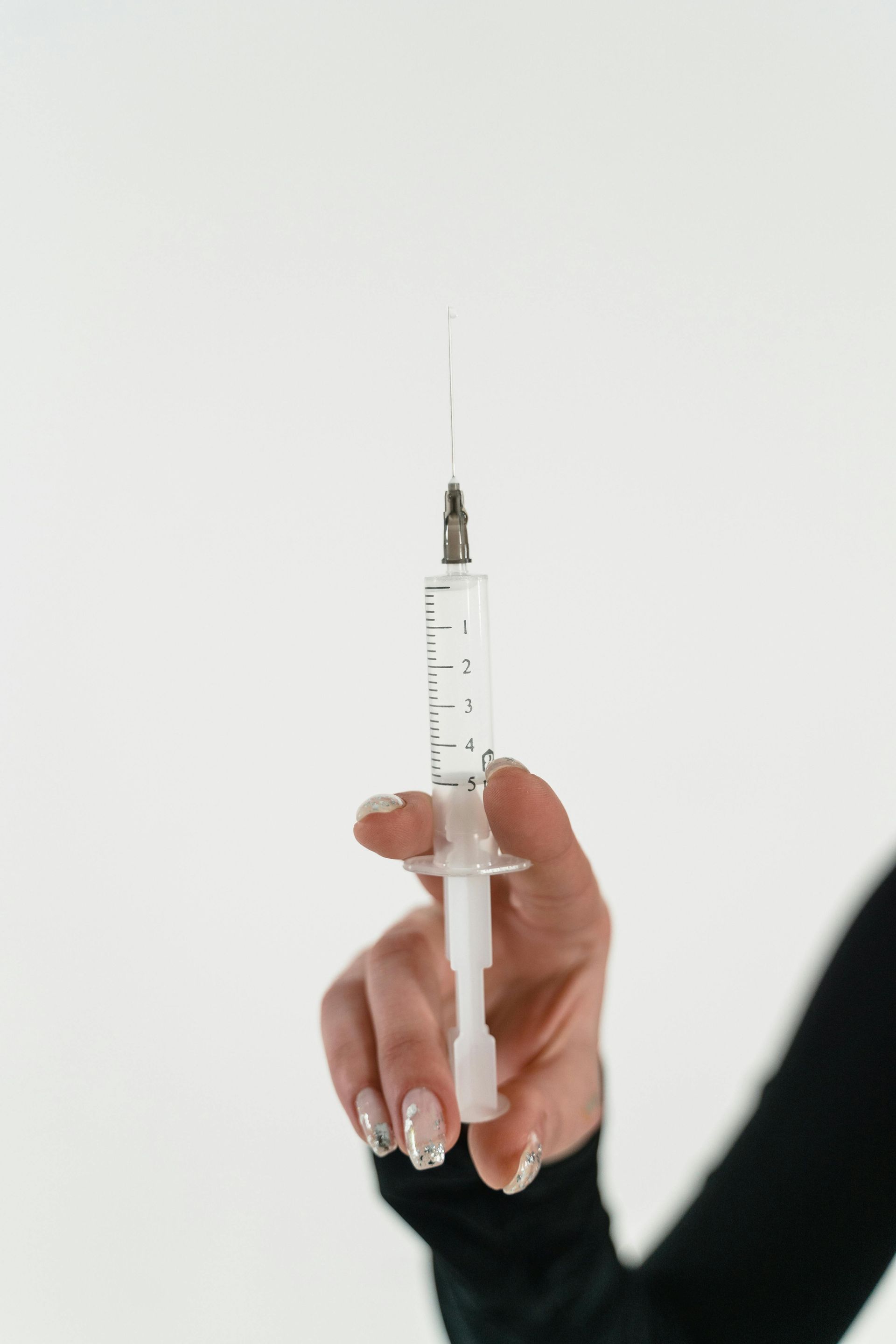MEDICATION: Depot & Perimenopause
Case Study: A 45-Year-Old Woman on Depot Provera
Background: Jane is 45yo and has been using Depot medroxyprogesterone acetate (Depo-Provera) for contraception for the past thirteen years. She loves the simplicity of a three-monthly injection and has appreciated the way it controlled her heavy, unpredictable bleeding. For the most part, she has felt well.
New Concerns:
Recently, Jane has started experiencing hot flushes and occasional irregular spotting between injections. She is worried: is the depot “wearing off”? Should she continue, or is it time for something different?
Why might this be happening?
- Hormonal override:
Depot suppresses ovarian function, but as women move through perimenopause, the ovaries can still release bursts of estrogen or progesterone. These fluctuations can sometimes “break through” the suppression, leading to new symptoms like flushes, night sweats, or breakthrough bleeding.
- Hypoestrogenic state:
Depot itself lowers estrogen, which can contribute to vasomotor symptoms (hot flushes, night sweats) and affect mood, libido, or vaginal comfort. In perimenopause, where estrogen levels are already erratic, this suppression can tip the balance further.
- Endometrial effects:
Irregular spotting is common with depot, especially in the first year, but it can also reappear if the endometrium is thin and unstable. At 45, it’s also important to rule out other causes (polyps, fibroids, endometrial changes), particularly if bleeding is persistent.
The symptoms of low estrogen can creep in gradually and are sometimes mistaken for “just part of aging,” when in fact they’re linked to falling estrogen levels often contributed to by the Depot. Which means they can therefore be improved by administration of estradiol/estrogen.
The Hormonal Hīkoi
One of the key lessons in perimenopause is that what worked before may not keep working. This is the essence of the Hormonal Hīkoi (journey) - our bodies are not static, and as hormones shift, the tools we used successfully in one stage may need to be adapted in the next. For Jane, depot may have been a great fit for years, but as her hormonal landscape changes, so too may the balance of benefits and risks.
Is depot still suitable for her?
Pros:
- Jane values the stability and convenience depot provides.
- She remains protected against unintended pregnancy.
- Her bleeding is lighter than before depot, despite the spotting.
Cons:
- At 45, bone health becomes a major consideration. Depot is associated with loss of bone mineral density, which is more concerning as menopause approaches.
- Her new vasomotor symptoms suggest that depot may be creating or unmasking a low-estrogen state.
Options moving forward
Stay on depot with added estrogen support:
- Transdermal estrogen (patch/gel) could be layered on to relieve flushes and protect bones.
- Expert consensus often suggests targeting estradiol levels around 250–300 pmol/L for bone health.
- If she is amenorrhoeic, she could transition towards continuous menopausal hormone therapy (MHT) while depot continues to provide contraception.
Switch to an alternative:
- Levonorgestrel IUS (Mirena): gives contraception, bleeding control, and can be combined with estrogen.
- Combined hormonal contraception: if no contraindications, this provides both contraception and symptom relief in perimenopause.
- Progestogen-only pill or implant: effective contraception with less impact on bone density than depot.
Investigate the spotting:
- Arrange an assessment (pelvic ultrasound, endometrial evaluation if needed) to ensure no other cause of bleeding.
Key Lesson
Depot Provera can be effective and well tolerated, but in women over 40, bone health and emerging perimenopausal symptoms need careful monitoring. For Jane, staying on depot could still be reasonable if she adds estrogen support (and needs more endometrial protection) and checks her bone health - but transitioning to another option like Mirena or MHT may ultimately be safer and more comfortable as she moves closer to menopause.
What is Depot Provera?
Depot Provera is an injection given once every twelve weeks. It contains a hormone called medroxyprogesterone (a type of synthetic progestin), which works by switching off ovulation (the release of an egg from the ovaries). It also thins the lining of the uterus, so even if an egg were released, it would be much harder for a pregnancy to establish. These two effects together make Depot Provera a very reliable contraceptive, with over 99% effectiveness when the injections are given on time.
Many women also notice that their periods become much lighter or stop altogether while using it, which can be an added benefit during perimenopause.
What does 'low estrogen' feel like?
- Hot flushes & night sweats
- Vaginal dryness or irritation
- Pain or discomfort with sex
- More frequent or urgent trips to the toilet
- Low mood, irritability, or brain fog
- Lower energy or fatigue
- Changes in skin, hair, or joints
- Reduced libido
These changes aren’t “just aging” - they often reflect falling estrogen levels in perimenopause.



